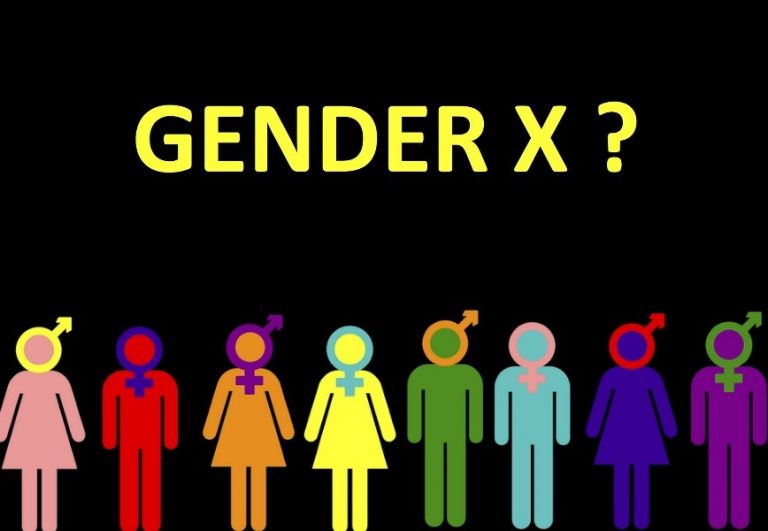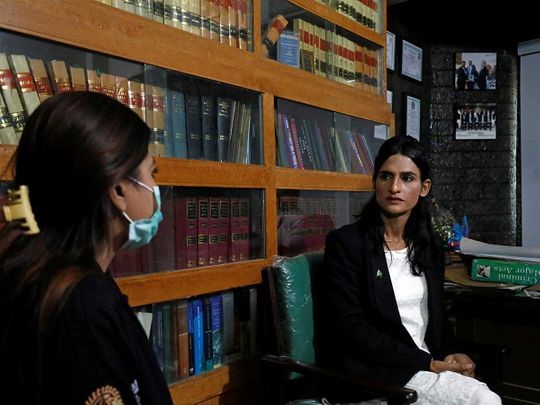
Despite legislation, a practical approach to award the due rights to the transgender community seems to be far away
Prof. Dr. Abdullah G Arijo
When I finish my classes and leave for home, I see beggars of all types, but my preference is to donate some amount, to X genders, whom people tease with every means.
I virtually look for X genders and with due respect talk to them and this attracts everyone with questions about them as to why a professor rewards such respect to X genders.
“Sir, why do you treat them so differently, after all, they are x gender.” So? I asked, and the boy went silent.
The next day, I taught a genetic syndrome – Klinefelter Syndrome, in class. I spoke for about 5o minutes on three genetic syndromes including XXY syndrome in males and 0X syndrome in females.
The following day, many students stood off their seats and asked for an apology, for they realized that it was a genetic syndrome.
Klinefelter syndrome (sometimes called Klinefelter’s, KS or XXY) is where boys and men are born with an extra X chromosome. Chromosomes are packages of genes found in every cell in the body. There are 2 types of chromosomes, called sex chromosomes that determine the genetic sex of a baby.
It reminds me of a day, when in the Memorial Building at the University of North Wales, Bangor, UK, an English professor, who was reading the Sputnik digest started telling me “Are you from India?” No, I said. But your skin color says so. No, I am from Pakistan, and we share the same skin color. But some Indians and Pakistani have fresh color too, he added. That’s because we have been under English rulers for 100 years and due to cross-marriages, this is possible.
Would you like coffee? “No”, I already have tea. What do you think of X genders? They are humans like you and me. And he gave me a big lecture in favor of X genders. I gave him my word about Klinefelter’s Syndrome. In the end, he said, I have a friend like you for you believe in enlightened moderation.
X-gender is a third gender that differs from M for males or F for females. The term X-gender came into use during the late 1990s, popularized by queer organizations in Kansai, especially in Osaka and Kyoto. The term is used in place of non-binary and genderqueer as claimed by Zulfiqar Junior, if I am not wrong.
 Having an identity like Gender X is a Taboo in Pakistan. Gender relations in Pakistan rest on two basic perceptions: women are subordinate to men, and that a man’s honor resides in the actions of the women of his family. Thus, as in other orthodox Muslim societies, women are responsible for maintaining family honor. To ensure that they do not dishonor their families, society limits women’s mobility, places restrictions on their behavior and activities, and permits them only limited contact with the opposite sex.
Having an identity like Gender X is a Taboo in Pakistan. Gender relations in Pakistan rest on two basic perceptions: women are subordinate to men, and that a man’s honor resides in the actions of the women of his family. Thus, as in other orthodox Muslim societies, women are responsible for maintaining family honor. To ensure that they do not dishonor their families, society limits women’s mobility, places restrictions on their behavior and activities, and permits them only limited contact with the opposite sex.
What to say of gender, we in Pakistan have attitudes toward males, females, and X-gender based on our own and diversified definitions. Our attitudes impact the way we view gender because you can either accept those who come out as a different gender than what they were before, or you cannot accept it. Most people have this idea of what a man and woman should be like the way they should dress, act, walk, and talk.
Come what may, after all every citizen has the right to live the way he wants. But the kind of society we live in has ill approaches when it comes to the gender issue.
Pakistan’s parliament passed a landmark bill that gives the country’s transgender citizens fundamental rights. The Transgender Persons (Protection of Rights) Act allows people to choose their gender and to have that identity recognized on official documents, including national IDs, passports, and driver’s licenses. The bill prohibits discrimination in schools, at work, on public modes of transit and while receiving medical care.
It is nice to know that the federal and Punjab governments have decided to start inducting people who are transgender into the public sector, including the police department. The governments have begun allocating seats for people who are transgender along with men and women and have even given them an age relaxation of up to two years. People who are transgender will soon be able to apply for jobs in different public institutions including wildlife, fisheries, social welfare, health, anti-corruption, and others. They can also apply for jobs which are advertised by the Punjab Public Service Commission (PPSC).
There is also news in print media, that, Sindh becomes the first province in Pakistan to reserve jobs for the transgender community. The Sindh Assembly unanimously adopted the Sindh Civil Servants (Amendment) Bill-2021 to reserve a 0.5 per cent quota in jobs of the provincial government for the members of the transgender community.
With all this in papers, a practical approach to award the due rights to the transgender community seems to be far away, and the community face concentration in attitude issues that have created hindrances and made life miserable. We must, therefore, change our minds and provide a peaceful place for the X genders.
_______________
 Prof. (R) Dr. Abdullah G. Arijo is Advisor and Visiting Professor Shaheed Benazir Bhutto University of Veterinary and Animal Science, Sakrand, Sindh Pakistan. Formerly, he was Chairman, Department of Parasitology, Sindh Agriculture University Tando Jam. After retirement, he also served there as Advisor Academics & P&D to Vice Chancellor. He can be reached at Email: abdullaharijo.faculty@sbbuvas.edu.pk
Prof. (R) Dr. Abdullah G. Arijo is Advisor and Visiting Professor Shaheed Benazir Bhutto University of Veterinary and Animal Science, Sakrand, Sindh Pakistan. Formerly, he was Chairman, Department of Parasitology, Sindh Agriculture University Tando Jam. After retirement, he also served there as Advisor Academics & P&D to Vice Chancellor. He can be reached at Email: abdullaharijo.faculty@sbbuvas.edu.pk